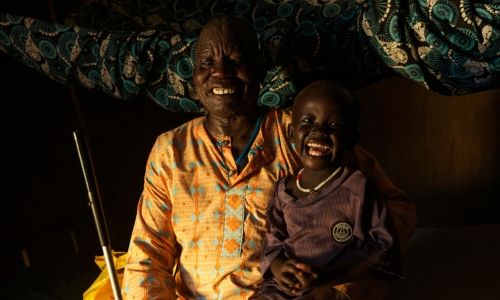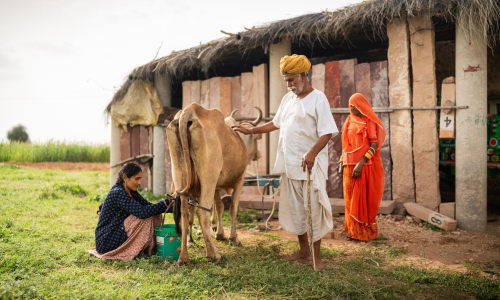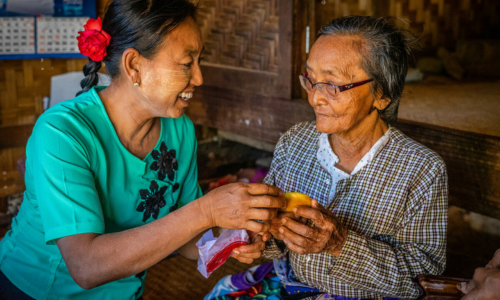
In their own words: Why Angelina in South Sudan went thirsty due to coronavirus
Since civil war broke out in South Sudan over seven years ago, violence and unrest has forced millions of people to flee their homes, including Angelina and her family. But the coronavirus pandemic has brought new deprivations to internally displaced people like her.
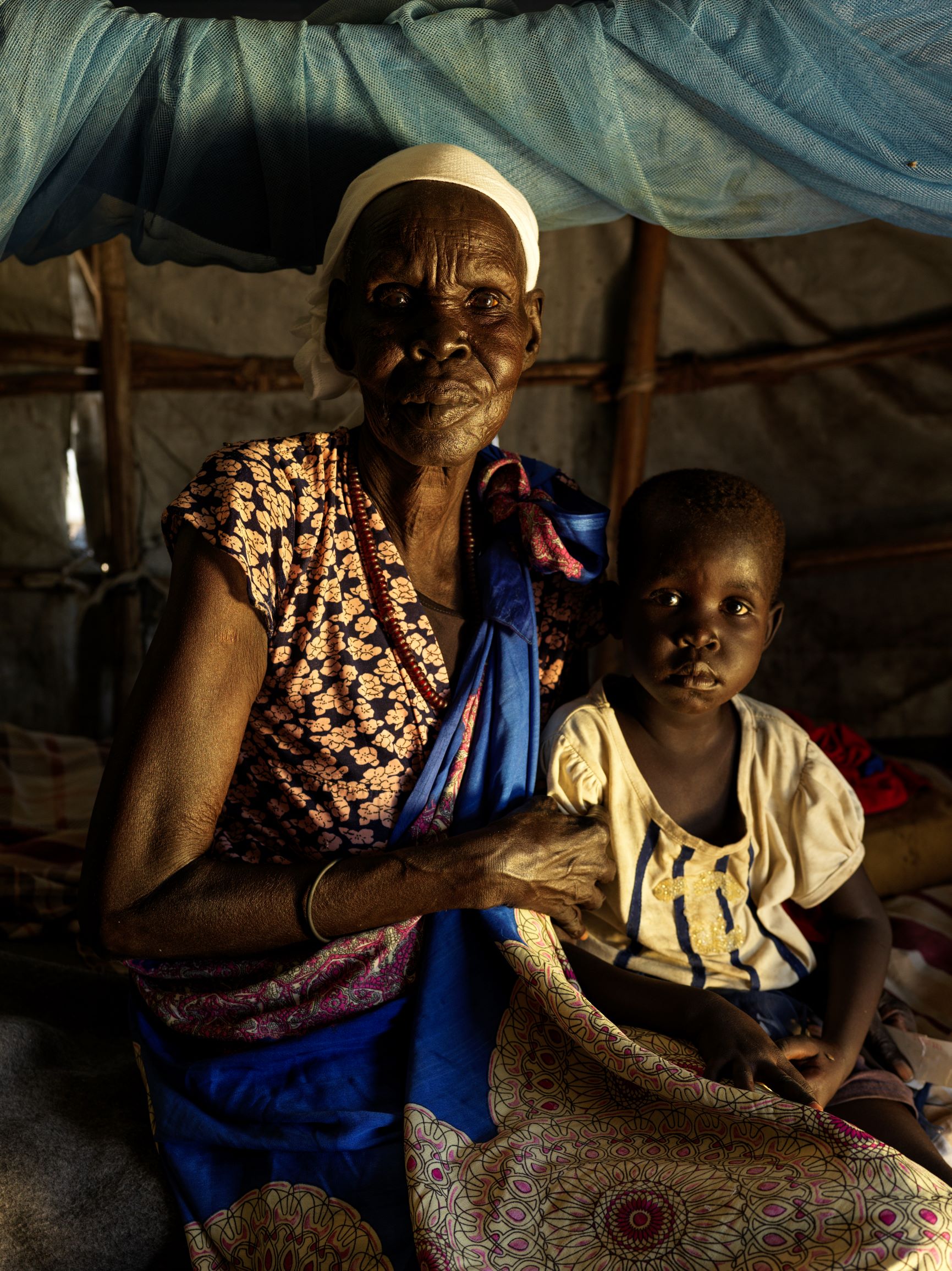
Angelina, above, lives in one of the UN Protection-of-Civilian (PoC) camps for displaced people with her daughter and grandchildren near Juba, the capital. The PoC camps are overcrowded and were only intended to provide temporary shelter for the displaced, but Angelina is grateful for the protection.
"The bad memories from the time of the war I cannot remember anymore. From the time I arrived in the camp I started to forget and can sleep normally."
But the coronavirus pandemic has brought fresh hardship for Angelina, who told us:
"During the time of the coronavirus we received a lot of information to stay home, to distance ourselves, but because there's so many people in one house it's hard to do social distancing."
Concerned for her mother's safety, Angelina's daughter divided the house into two rooms and asked her "to stay home because coronavirus could easily kill people like her" and urged her to wear facemasks each day. Age International, with our partner HDC, has distributed cloth facemasks, detergent and soap in South Sudan to help older people like Angelina protect themselves from the virus.
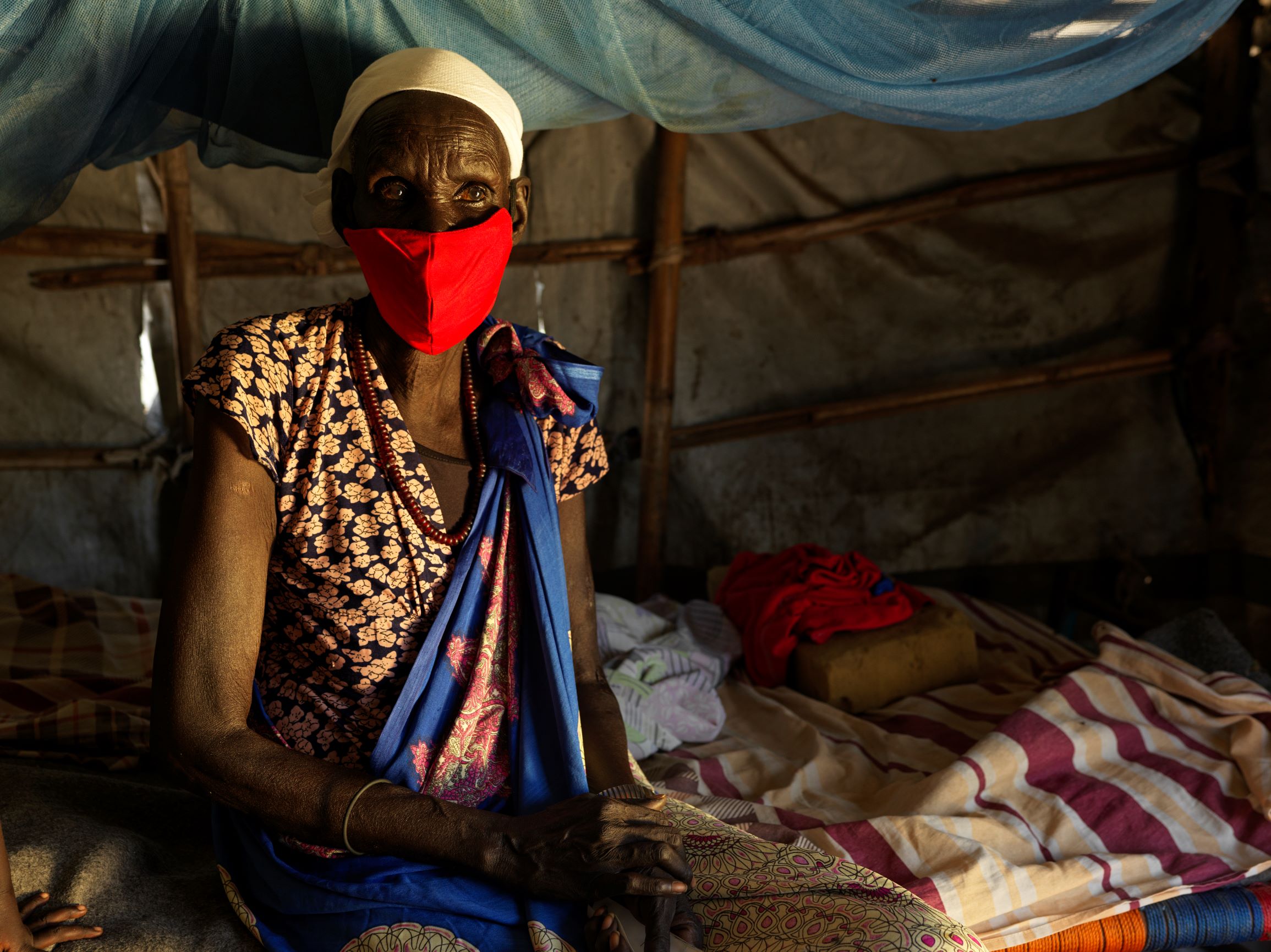
Later, Angelina explained why her daughter was so cautious – "old people like us have a weaker immune system so if we tested positive for coronavirus, we’d simply think that we’d not survive”. Age International with HDC reached out to older people with age-inclusive information about the virus, as older people’s habits and specific needs are often overlooked in awareness-raising campaigns.
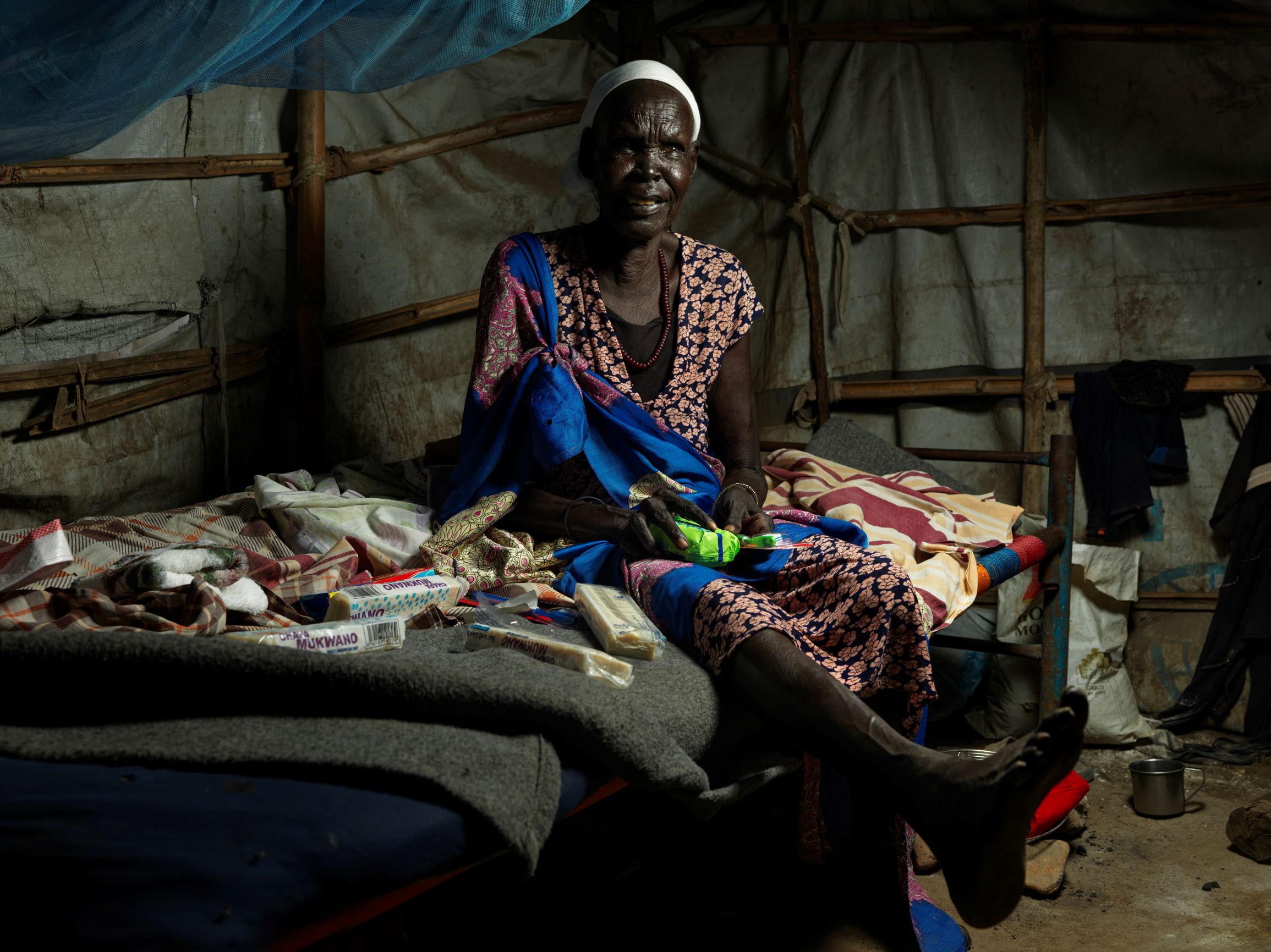
The restrictions in place during the pandemic also disrupted support provided to the camps including the distribution of essential supplies. Angelina explained that the lack of drinking water was the worst deprivation.
"Life is very hard in the time of coronavirus because you may find that food is there, but water is hard to find. I want to go and get water, but the water points are empty, unless you have money - then you can buy water. But if you don't have money then you stay home and go thirsty."
Dehydration is a major challenge inside refugee camps in South Sudan, which received little to no support during the coronavirus lockdown. That’s why we worked with HDC to provide regular clean water deliveries, as well as water storage drums and chlorine tablets.

"I'm grateful for the protection that we receive here."
Help us to continue supporting older people around the world
Whether with better healthcare, a secure income or life-saving aid – your gift could help change lives.
 Follow us on social media
Follow us on social media
Keep seeing our stories or ask us a question - connect on Facebook and Twitter.

